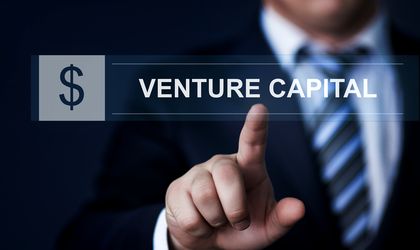Chilin Capital invests in early-stage, data-driven startups across a wide range of industries. The best companies create their own sectors. As a general matter, the most promising companies (at least from our perspective as investors) tend to share a few characteristics:
- They are not popular (popular investments tend to be pricey; e.g., Groupon at so many dozens of billions).
- They are difficult to assess (this contributes to their lack of popularity).
- They have technology risk, but not insurmountable technology risk.
- If they succeed, their technology will be extraordinarily valuable.

We have no idea what these companies might look like, only that they probably will share these characteristics. Entrepreneurs often know better than we do what might be enormously valuable in the future. To figure it out, we invest in smart people solving difficult problems, often difficult scientific or engineering problems. In our experience, it really does matter who runs the business, because the world does not beat a path to the door of the better mousetrap. Shockley Semiconductor, Fairchild Semiconductor, and Intel all successfully resolved roughly similar technical problems, but only Intel truly prospered – poor management consigned the other two to “also-ran” status.
A curious point: companies can be mismanaged, not just by their founders, but by VCs who kick out or overly control founders in an attempt to impose ‘adult supervision.’ VCs boot roughly half of company founders from the CEO position within three years of investment. Chilin Capital has never removed a single founder – we invest in teams we believe in, rather than in companies we’d like to run – and our data suggest that finding good founding teams and leaving them in place tends to produce higher returns overall.  Indeed, we have often tried to ensure that founders can continue to run their businesses through voting control mechanisms. This approach, we believe, accords with common sense. No entrepreneur, however good, knows precisely how their company’s business model will evolve over time. When investing in a start-up, you invest in people who have the vision and the flexibility to create a success. It therefore makes no sense to destroy the asset you’ve just bought. As a corollary, it makes no sense to shackle a company to the Procrustean bed of its original business model. Businesses really do evolve over time and changing models in the early years is anything but a sign of weakness. PayPal went through five different business models before arriving at one that worked. We do not expect that the first business model for a company will be the final or best business model and do not see evolution as a negative. The most powerful minds are the ones that can be changed.
Indeed, we have often tried to ensure that founders can continue to run their businesses through voting control mechanisms. This approach, we believe, accords with common sense. No entrepreneur, however good, knows precisely how their company’s business model will evolve over time. When investing in a start-up, you invest in people who have the vision and the flexibility to create a success. It therefore makes no sense to destroy the asset you’ve just bought. As a corollary, it makes no sense to shackle a company to the Procrustean bed of its original business model. Businesses really do evolve over time and changing models in the early years is anything but a sign of weakness. PayPal went through five different business models before arriving at one that worked. We do not expect that the first business model for a company will be the final or best business model and do not see evolution as a negative. The most powerful minds are the ones that can be changed.
This brings us to another counterintuitive point: the best founders want to radically change the world for the better. To many investors, visionary entrepreneurs come off as naïve or worse – isn’t it safer/easier/more profitable to create a(nother) social network for cat fanciers than to try to cure cancer or organize the world’s information? The problem is that all start-ups are difficult – long hours, low pay, and fierce competition wear on even the most dedicated teams.
The entrepreneurs who make it have a near-messianic attitude and believe their company is essential to making the world a better place. It doesn’t matter whether everyone agrees with the entrepreneur about the world-historical nature of the project – if the entrepreneur seeks an impact beyond his own payday and can convince employees of the same, the project is much more likely to get done. The engineers at SpaceX are passionate about commercializing and colonizing space; profit is a significant byproduct of their extraordinary effort to achieve that goal but not enough to get them to pull the thousandth all-nighter. The same is true of Jobs at Apple, or the programmers at Palantir, or the researchers at new drug companies. Early in a company’s life, an entrepreneur can make enough money to satisfy his own needs (though often not much of a return for the investor); to take a company from $1 million to $1 billion requires singular vision and dedication. Wild-eyed passion is not a bad thing by any means.
